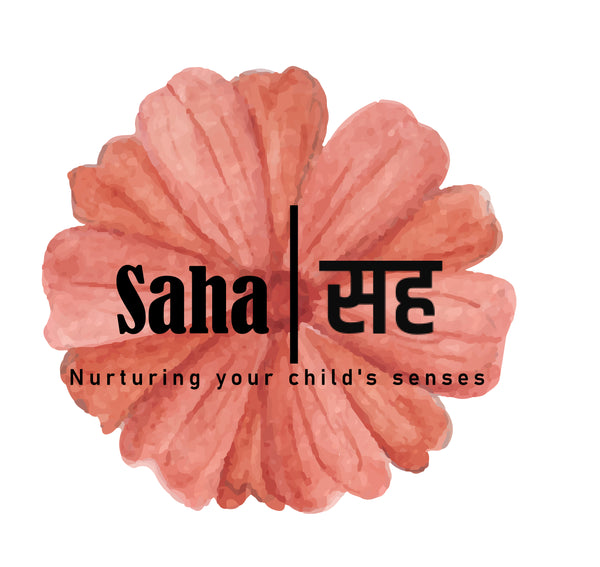
How Waldorf Education is Relevant Today
Share
In a fast-paced, test-driven educational landscape, Waldorf education offers a refreshing, human-centered alternative—one that nurtures creativity, emotional intelligence, and holistic development. Rooted in over a century of practice and increasingly validated by neuroscience, the Waldorf model prepares children not just to perform, but to thrive in an ever-changing world.
Why Waldorf Still Matters Today
Rather than rushing into academics, Waldorf aligns with child development, focusing on imaginative play, the arts, movement, and emotional growth. It postpones formal reading and writing until around age 7—a decision supported by modern research into brain development. Instead of pushing standardized testing, Waldorf emphasizes autonomy, purpose-driven activity, and deep learning through doing.
From storytelling to woodworking, Waldorf classrooms cultivate resilience, creativity, and compassion—qualities the future demands, especially in the age of AI and automation.
If you're a parent looking for a heart-centered, science-backed alternative to traditional academics, Waldorf education may just be the path you've been searching for.
1. Delayed Academics: A Neuro-scientific Approach
Waldorf education intentionally delays formal academics, such as reading and writing, until around age seven, aligning with neurological research. Studies show that the prefrontal cortex, responsible for abstract thinking, develops later in childhood. Introducing academic subjects too early can overwhelm neural pathways not yet ready for symbolic learning (NIH, 2021).
Waldorf focuses on sensorimotor development in the early years—activities like knitting, woodworking, and nature walks build strong neural networks that later support academic skills (Waldorf School Association, 2023).
2. The Power of Unstructured Play
Waldorf emphasizes open-ended play, which is backed by developmental science. Unstructured play helps activate the brain’s default mode network, enhancing problem-solving, self-regulation, and social skills (American Academy of Pediatrics, 2020). Without prescribed outcomes, children engage in divergent thinking—a crucial skill for creativity and leadership.
This approach allows children to develop imagination and flexibility, essential qualities in a world where adaptability is key to success.
3. Fostering Autonomy: No Instructions, No Tests
In the early years, Waldorf teachers guide children through hands-on activities like gardening and baking, rather than giving direct instructions. This promotes executive function, helping children develop focus and initiative through imitation (Harvard Center on the Developing Child, 2022). The absence of early tests and pressures reduces anxiety and preserves intrinsic motivation, allowing children to learn in a stress-free environment (Stanford University, 2021).
By fostering autonomy and independent thinking, Waldorf education prepares children to tackle real-world challenges with confidence.
4. Imaginative Arts: Nurturing the Creative Mind
In Waldorf schools, arts—such as painting, storytelling, and music—are not seen as extracurricular activities but integral to the curriculum. Artistic expression strengthens neuroplasticity, enhancing memory and emotional processing (Dana Foundation, 2023). Waldorf’s focus on symbolic thinking, through stories and fairy tales, also lays the foundation for later development in math and literacy.
By engaging with the arts daily, children develop both cognitive skills and emotional intelligence, building a deep connection between mind and body.
5. Holistic Development: Beyond IQ
One of Waldorf's key strengths is its rejection of fragmented learning in favor of integrated growth. The curriculum focuses on emotional intelligence, physical wisdom, and spiritual resilience. Group activities, such as collaborative projects, teach empathy and conflict resolution, which are essential skills in today's interconnected world.
Waldorf’s commitment to movement-based learning (like eurythmy) aligns the body and mind, fostering a balanced approach to personal development (Waldorf Education Network, 2022). Immersion in nature and seasonal rhythms encourages a spiritual connection with the world, promoting mindfulness and a deep appreciation for life.
6. Waldorf Graduates in the Modern World
In a world driven by AI, automation, and technological advancements, the skills nurtured in Waldorf schools—creativity, critical thinking, and empathy—are more important than ever. Waldorf graduates are not defined by rote skills but by their adaptability, problem-solving abilities, and emotional resilience.
As more companies value emotional intelligence and creative thinking, Waldorf education is an investment in preparing children to lead in a complex world. The focus on holistic development ensures that children don’t just succeed—they thrive, becoming well-rounded individuals ready for the future.
Conclusion: Why Waldorf Education Matters Today
In a fast-paced world where standardized metrics dominate, Waldorf education stands out as a heart-centered, science-backed alternative. By fostering creativity, emotional intelligence, and resilience, it prepares children for the challenges of the future—ensuring they grow into thoughtful, adaptable individuals.
If you're seeking an educational path that goes beyond the pressures of early academics, Waldorf offers a nurturing environment where children can develop into whole, well-rounded individuals.
References:
-
National Institutes of Health (NIH). (2021). Brain Development and Learning. Retrieved from https://www.nih.gov
-
American Academy of Pediatrics. (2020). The Role of Play in Child Development. Pediatrics, 145(5), e20193157. https://pediatrics.aappublications.org
-
Harvard Center on the Developing Child. (2022). The Importance of Executive Function in Early Development. https://developingchild.harvard.edu
-
Stanford University. (2021). Reducing Anxiety in Early Childhood Education. https://news.stanford.edu
-
Dana Foundation. (2023). Neuroplasticity and the Arts. Retrieved from https://www.dana.org
-
Waldorf School Association. (2023). The Role of Sensorimotor Development in Early Childhood Education. https://www.waldorfeducation.org
